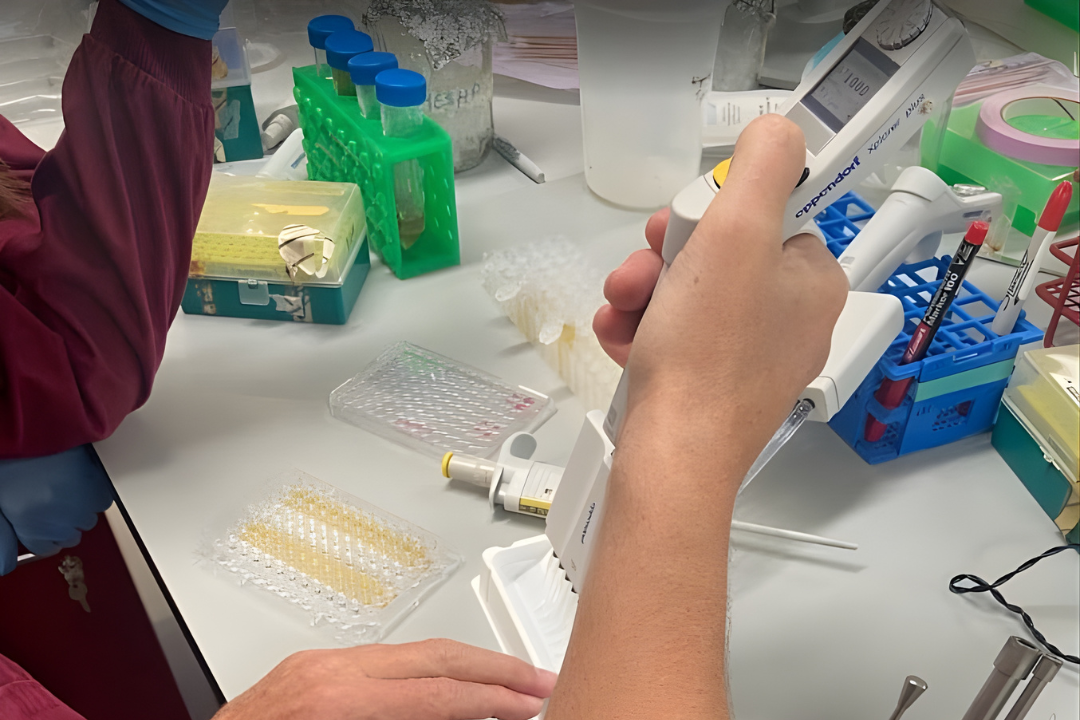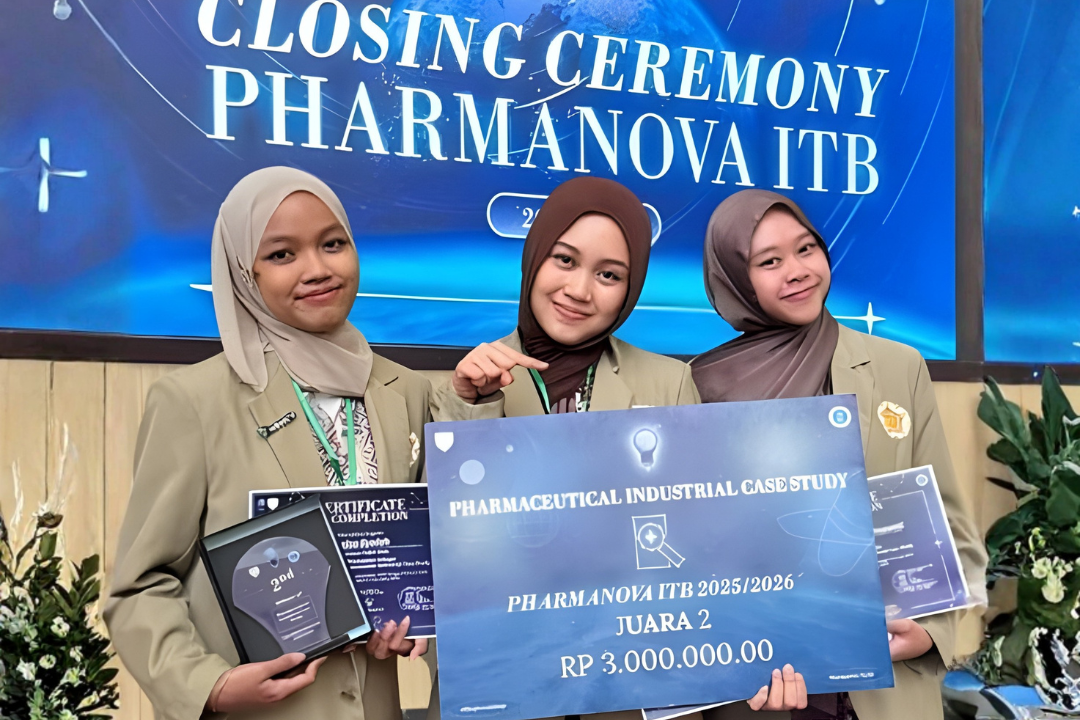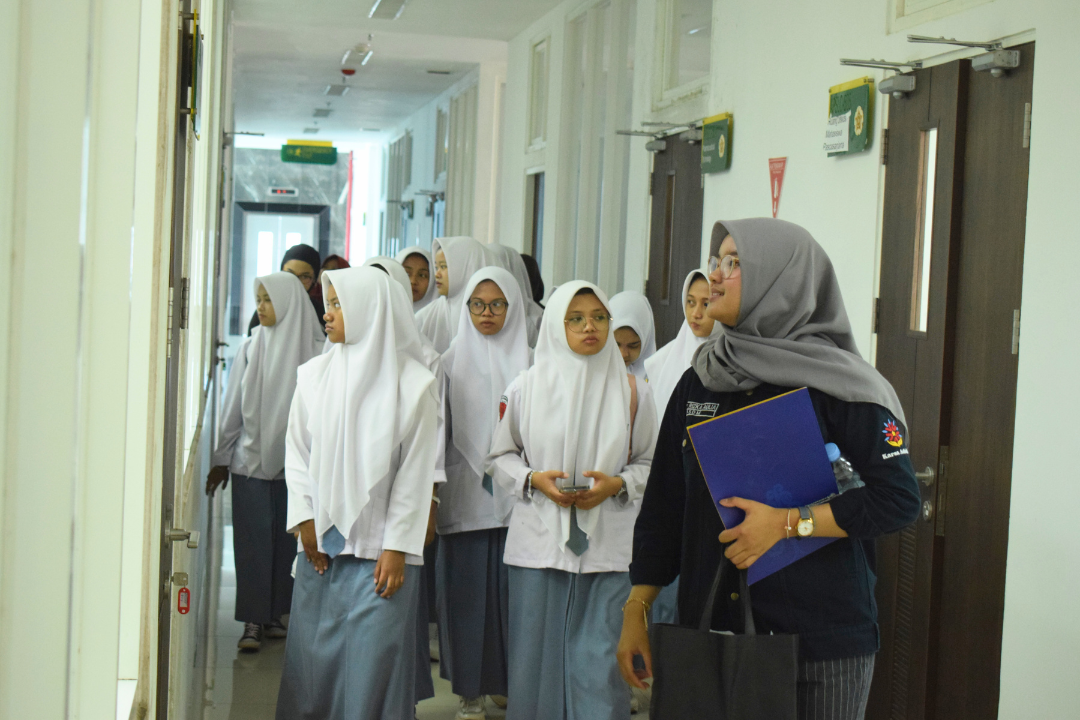Farmasi UGM – Demonstrating its commitment to community service, the Faculty of Pharmacy at Gadjah Mada University (UGM) organized a “Training on Introduction to Medicinal Plants” in Bokoharjo Village, Prambanan Sub-district, on Thursday, October 10, 2024. This initiative, in collaboration with the Bokoharjo Village administration, specifically targeted women activists from the Desa Prima Ngudi Makmur group, aiming to enhance their understanding of the benefits and processing methods of local medicinal plants to improve quality of life.
The event was officially opened by the Head of Bokoharjo Village, who delivered a warm welcome and expressed full support for the Faculty of Pharmacy UGM’s initiative to empower the community through knowledge in the field of medicinal plants.
The training featured two expert speakers from UGM’s Faculty of Pharmacy. Dr. Djoko Santosa, M.Si, presented comprehensive material on identifying various types of medicinal plants, recognizing beneficial plants, understanding their important active compounds, and proper cultivation and care techniques for optimal results.
The following session was led by Dr. Apt. Andayana Puspitasari Gani, M.Si, who focused on post-harvest aspects. She provided a detailed explanation of the stages involved in processing medicinal plants into safe and beneficial raw materials for natural medicines, such as traditional remedies, extracts, and other herbal products that can support daily health.
The event proceeded interactively with a discussion session moderated by Ibu Tunjung. Participant enthusiasm was evident from the many questions asked, including one about the specific benefits of gotu kola (daun pegagan) and moringa (daun kelor) leaves. The speakers explained that gotu kola is well-known for improving memory, while moringa, rich in minerals, offers diverse benefits, including anti-inflammatory and antioxidant properties, and can potentially help address child stunting. This UGM Faculty of Pharmacy initiative not only provides direct benefits to participants but also aligns with global commitments to achieve the Sustainable Development Goals (SDGs).
Specifically, this training contributes to SDG 3 (Good Health and Well-being). By gaining knowledge about the identification, benefits (such as gotu kola for memory and moringa as an anti-inflammatory and stunting preventative), and processing methods of medicinal plants, the women of Desa Prima Ngudi Makmur are empowered to independently maintain and improve their families’ health. The utilization of local natural resources for simple preventive and curative treatments is expected to enhance the overall health quality of the community.
Furthermore, this activity significantly supports SDG 4 (Quality Education). The training provides access to relevant and quality non-formal education for the community, particularly women. The transfer of knowledge from UGM academics regarding botanical, pharmacological, and medicinal plant processing technology aspects constitutes a form of lifelong learning, equipping participants with practical skills. These skills enable them to make science-based decisions related to health and natural resource utilization.
This training also supports SDG 12 (Responsible Consumption and Production) by promoting the sustainable and mindful use of local medicinal plants, from cultivation to processing, while applying safe and efficient production practices. Additionally, it contributes to SDG 15 (Life on Land) by encouraging the conservation of local biodiversity through education on the importance of preserving and cultivating Indonesia’s native medicinal plants, thus helping to maintain ecological balance and strengthen rural ecosystems.
The participants, predominantly women activists from the Desa Prima Ngudi Makmur group, expressed high enthusiasm and hope to promptly apply the knowledge gained. They are optimistic that this new understanding will be highly beneficial for improving the health of their families and the surrounding community by utilizing readily available medicinal plants. This activity is expected to continuously strengthen public awareness of the importance of wisely using local natural resources for collective well-being.





